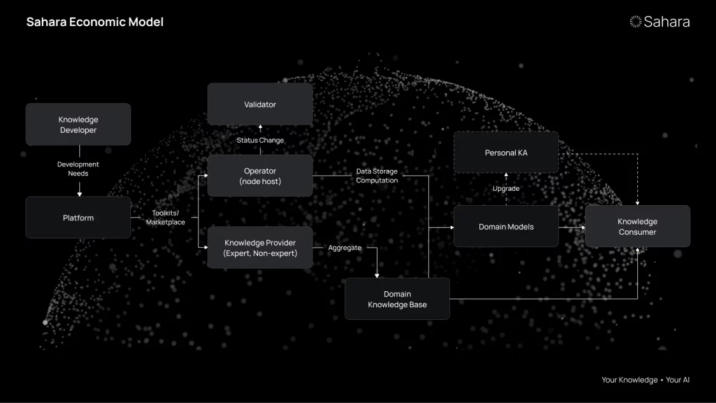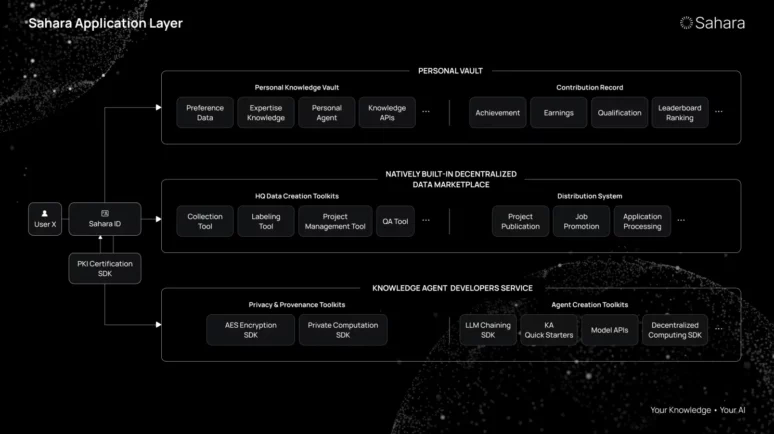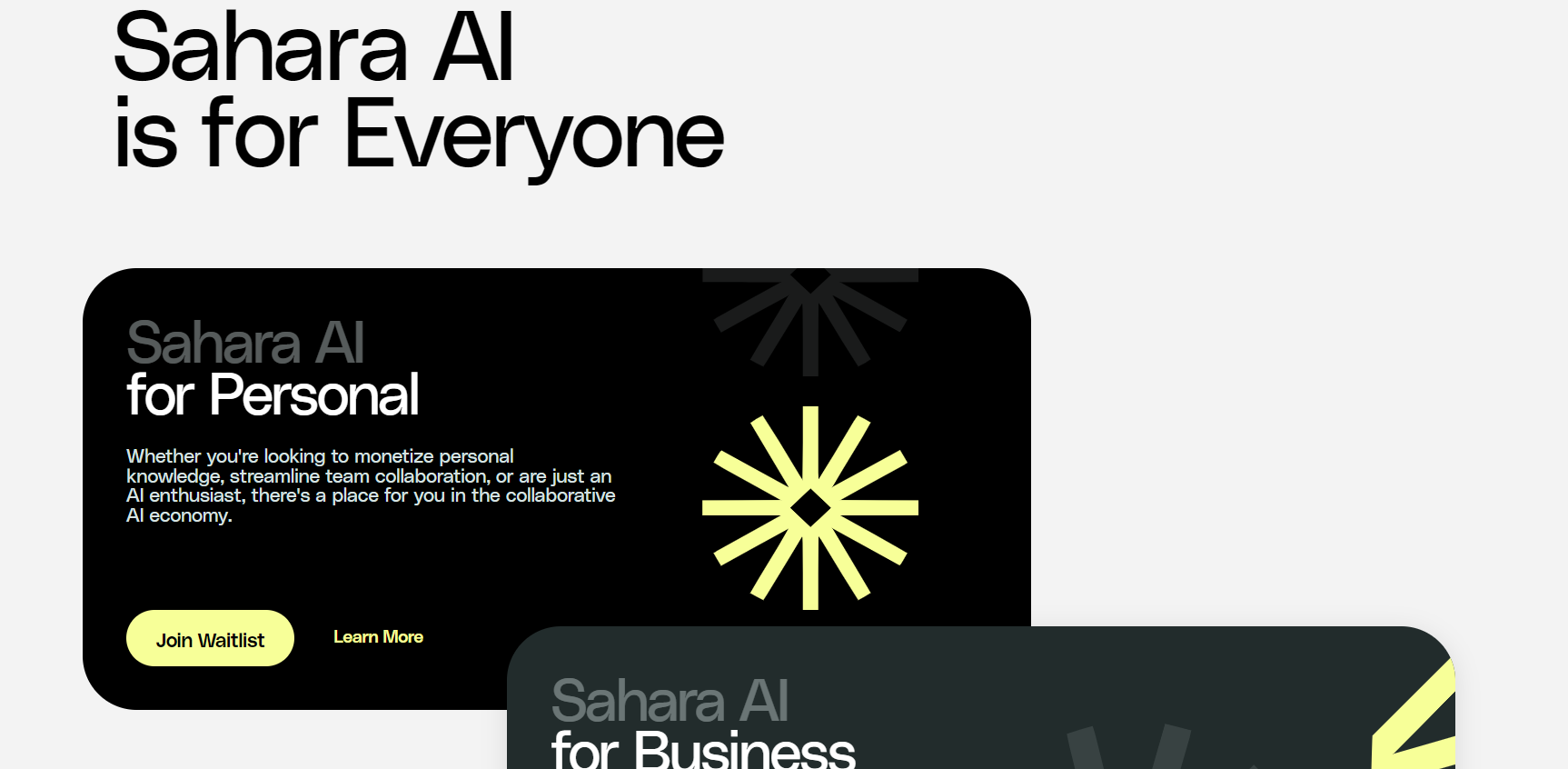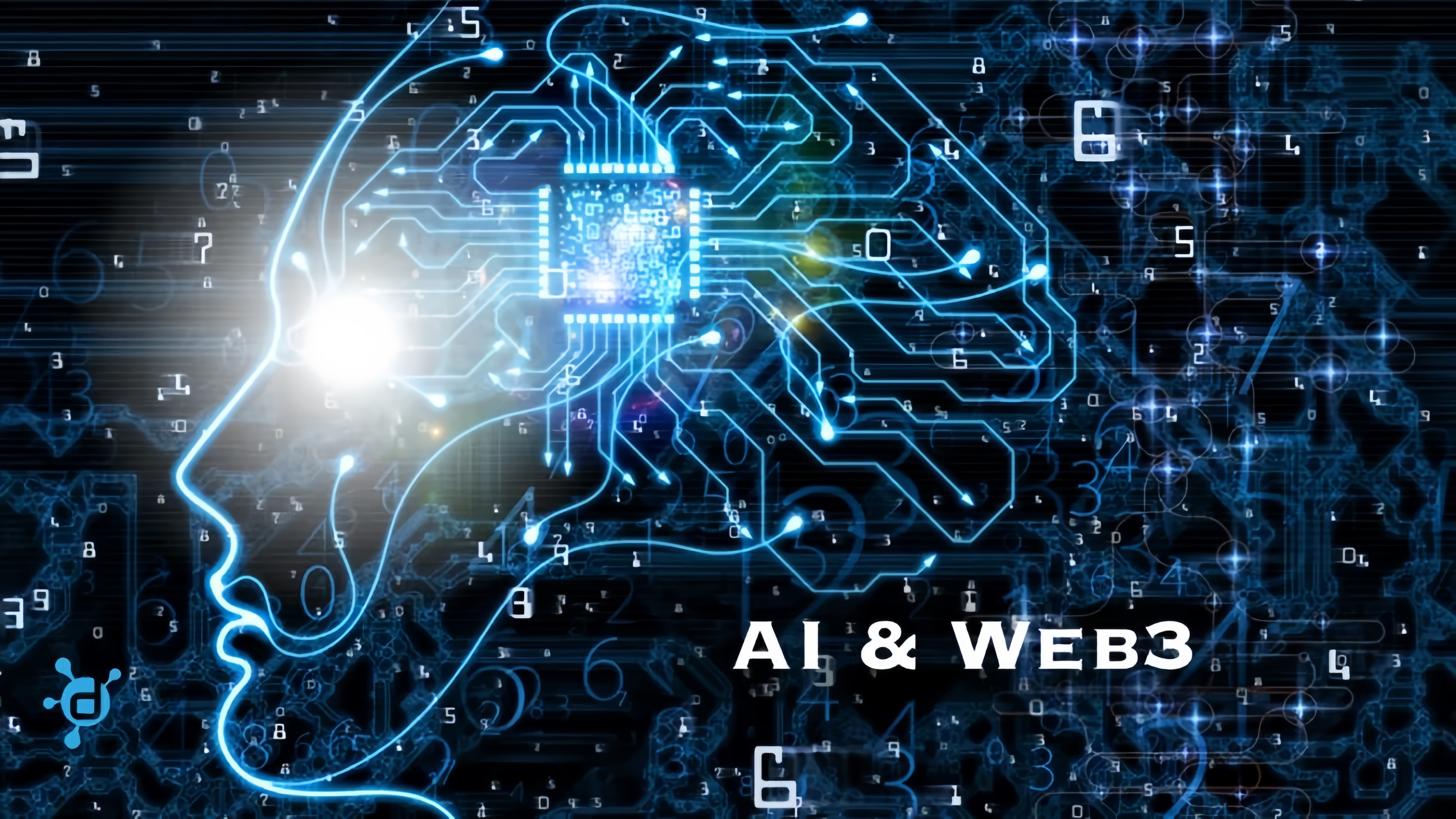Decentralized AI platform Sahara AI raises $43 million, ushering in a new era of the AI economy
![]() 08/23 2024
08/23 2024
![]() 506
506
"Industry Observer" is our dedicated column focusing on cutting-edge technologies such as AI, XR, Metaverse, and Web3, sharing stories of emerging enterprises and entrepreneurs in these fields. Sahara AI, an innovative decentralized AI blockchain platform, aims to provide efficient, secure, and transparent smart contract and data analysis services. What products underpin this massive $43 million funding? Here's our 24th issue. Enjoy!
Last week, Sahara AI, an emerging decentralized AI blockchain platform, officially announced raising a whopping $43 million in funding.
Notably, Sahara AI has garnered interest not only from top investment firms like Binance Labs, Polychain Capital, and Pantera Capital but also from traditional investors including Samsung and Matrix Partners China.
Beyond capital markets' recognition of Sahara AI's technical prowess and growth potential, this funding round could signal a new chapter for decentralized AI technology.
01. 1-Minute Project Overview
1. Project Name: Sahara AI
2. Establishment Date: May 2023
3. Product Introduction:
Sahara AI aims to build a decentralized AI network infrastructure, enabling users to deploy or build customized AI products.
4. Founder Team:
Sean Ren: Tenured Professor of Computer Science at the University of Southern California, with 15 years of research experience in AI
Tyler Zhou: Former Investment Director at Binance Labs, involved in multiple project investments and incubations
5. Funding Status:
In August 2024, Sahara AI secured $43 million in funding from investors including Binance Labs, Polychain, and Pantera.
Prior to this, Sahara AI completed a $6 million seed round led by Polychain Capital, with participation from Sequoia Capital, Samsung Next, Nomad Capital, among others.
02. Making AI More Open
As AI grows powerful, personal data concentrates in the hands of a few large tech companies. This power centralization and lack of transparency hinder innovation and risk algorithmic bias and privacy violations.
Some tech experts recognized this issue and sought solutions. The concept of "decentralized AI" emerged. Led by Sean Ren, a tenured professor at USC's Computer Science Department, and other members, they founded Sahara AI, a decentralized AI blockchain platform.
Sahara AI's founding team boasts diverse backgrounds in AI, blockchain technology, and distributed systems. Members like Tyler Zhou, with experience at Samsung, Microsoft, Binance, Google, and academic institutions, lay a solid foundation for Sahara AI's technological innovation and strategic development.
Today, Sahara AI is a significant player in the decentralized AI space, attracting developers, researchers, and enterprise users worldwide. Leveraging smart contracts and distributed computing, it offers innovative AI tools and services, driving the decentralized AI ecosystem's growth.
Sahara AI's success stems from its technological innovation and commitment to ethical and responsible tech development. It strives for a more open and equitable AI future, empowering users globally and sharing the fruits of technological progress.
03. Breaking Barriers in Traditional AI Development
Centered on decentralization and transparency, Sahara AI's models and products aim to dismantle traditional AI development barriers, empowering more developers while ensuring data privacy and security.
"Decentralized Core Products
A cornerstone of Sahara AI is its decentralized AI model marketplace. Developers can freely upload, share, and trade AI models, ensuring IP transparency and security through smart contracts.
Smart contracts ensure decentralized ownership and governance of AI, with transparent and immutable on-chain attribution.

Another vital product is its distributed computing network. AI model training demands substantial computational resources, often costly and unevenly distributed.
Sahara AI leverages blockchain to distribute computational tasks globally, incentivizing participants to contribute resources and participate in model training. This approach rewards contributors, fosters diversity, and drives AI ecosystem innovation.
"Decentralized AI Ecosystem
Sahara AI's success relies not just on innovative products but also on key components forming a robust decentralized AI ecosystem.
Next-gen robots will boast advanced sensors, computational power, and intelligent algorithms, enabling real-time comprehension and response to commands, tackling complex tasks.
Smart Contract System: Automating transactions and tasks without intermediaries, smart contracts underpin the model marketplace's fairness and transparency. They also allocate distributed computing resources, ensuring platform efficiency.
Sahara Token Economy: To incentivize developers and resource providers, Sahara AI introduces Sahara Tokens, blockchain-based digital assets for platform transactions, including model trading, computing resource leasing, and data sharing. This token economy fosters a self-sustaining ecosystem, attracting developers and users.
Cross-chain Compatibility: Sahara AI seamlessly integrates with other blockchains, leveraging their resources and ecosystems, enhancing reach and flexibility. Developers can migrate and share AI models and data across blockchains.
Open APIs & Developer Tools: Sahara AI offers extensive APIs and tools supporting multiple programming languages and environments. These facilitate rapid integration, model deployment, and management, fostering platform scalability and developer community engagement.

In summary, Sahara AI's decentralized architecture, unique products, and innovative business models are transforming the AI and blockchain industries.
04. The Future of Sahara and Decentralized AI
Post-funding, Sahara AI plans to expand its team, enhance AI blockchain performance, and accelerate developer ecosystem development.
CEO Sean Ren announced C-end user products, with Testnet launching in Q3 and Mainnet targeting Q4, further democratizing AI technology.

Beyond Sahara AI, decentralized AI's development merits attention. It offers an open, transparent, and secure data processing platform, providing valuable services while compensating data contributors through unique ownership verification.
Collaborating with over 30 enterprises, Sahara AI refines its products to cater to diverse global data needs, fostering a virtuous cycle.
This model addresses traditional AI's data privacy and economic model challenges, promoting a healthy AI ecosystem.

Sahara AI's decentralization enhances scalability and resilience. Global enterprises and startups can leverage its platform to build and deploy AI solutions, fostering industry innovation.
Decentralized AI excels in data encryption and attribution (ownership verification) through digital watermarking and public key infrastructure.
Data creators can embed their DID into data or models, generating a watermark verifying ownership. This watermark persists, facilitating data and model attribution.
As Sahara AI's Mainnet nears launch, decentralized AI technology heralds a new era of collaborative AI economics, fostering transparency, security, and accessibility.








